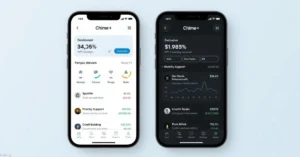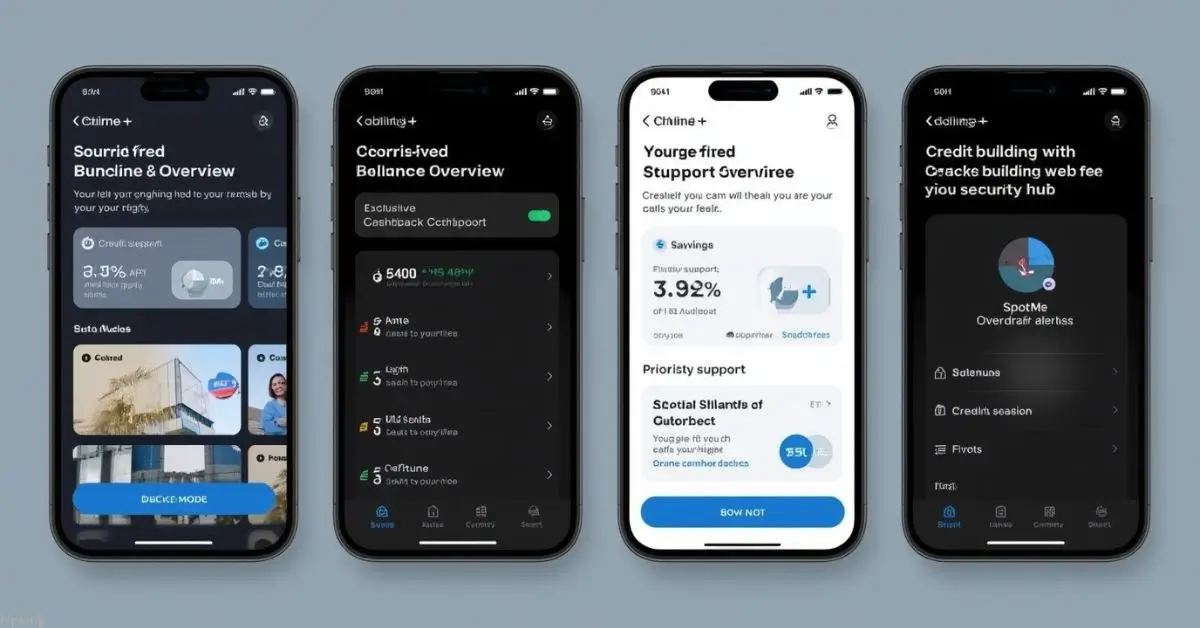If you’re a young professional, freelancer, or budget-conscious consumer, you’ve probably realized that traditional banks don’t always keep up with your lifestyle. High fees, rigid policies, and slow digital services can get in the way of managing money effectively.That’s where Chime premium tier banking features come in. As a leading neobank, Chime offers mobile-first financial tools that combine convenience, affordability, and transparency.
In this article, we’ll break down the Chime banking tiers, compare Chime premium vs standard, and explore the benefits, costs, and real-world use cases—so you can make an informed decision.
Understanding Chime Banking Tiers
Chime operates differently than traditional banks. Instead of offering multiple complicated accounts, it provides two main tiers:
- Standard (Free): Includes checking, savings, and basic mobile banking features with no monthly fees.
- Premium Tier: Adds advanced perks designed for users who want more control, flexibility, and security.
This simplified structure makes it easier to compare Chime membership levels without confusion.
Key Chime Premium Account Benefits
Here’s what sets the premium tier apart:
- Higher transaction limits → ideal for freelancers handling larger payments.
- Priority customer support → get faster solutions when issues arise.
- Expanded overdraft protection premium → higher safety net compared to the standard tier.
- Advanced budgeting tools → track spending, saving, and investing in one place.
- Premium security features → real-time fraud alerts and stronger data protection.
These digital banking perks are designed for users who want more than just a free checking account.
Chime Premium vs Standard: Which Is Better?
For many, the biggest question is: Chime premium vs free account— which is better?
| Feature | Standard (Free) | Premium Tier |
|---|---|---|
| Monthly Fees | $0 | Small monthly fee (varies by plan) |
| Overdraft Protection | Up to $200 | Higher overdraft protection premium limits |
| Customer Support | Standard response time | Priority access |
| Security | Standard monitoring | Premium fraud protection |
| Budgeting Tools | Basic | Advanced insights & automation |
If you only need fee-free online banking, the standard tier may be enough. But if you want premium services comparable to traditional banks, the upgrade makes sense.
Mobile Banking Features That Matter
Today’s young professionals and gig workers depend on mobile-first services. With Chime premium, you’ll find:
- Instant transaction notifications
- Mobile check deposit
- Early direct deposit (get paid up to 2 days early)
- Savings automation tools
- Mobile budgeting dashboards
These mobile banking features make managing money on the go easier than ever.
Chime Premium Security Features
Security is a major concern in digital banking. Chime premium includes:
- 24/7 fraud monitoring
- Real-time suspicious activity alerts
- Two-factor authentication (2FA)
- Instant card locking/unlocking from the app
According to the Federal Trade Commission (FTC), fraud reports reached over 2.4 million in 2022.¹ Upgraded Chime premium security features help protect against these risks.
Is Chime Premium Worth the Cost?
The question many ask: Is Chime premium worth the cost?
Yes, if: you’re a freelancer, remote worker, or someone handling irregular income who values higher limits, better security, and budgeting tools.
Maybe not, if: you just need a basic checking account and prefer zero monthly fees.
Financial experts at NerdWallet highlight that neobank premium services are often best for those who actively use digital tools to optimize money management.²
Chime Premium for Freelancers and Gig Workers
For freelancers and gig workers, Chime premium tier banking features are particularly useful:
- Higher transaction caps → receive larger client payments.
- Budgeting automation → track irregular income and set aside taxes.
- Instant transfers → send and receive payments quickly.
- Fee-free online banking → keep more of your hard-earned money.
This makes Chime competitive with other neobanks like Varo and Current, as confirmed by Forbes Advisor’s fintech banking comparisons.³
How Does Chime Premium Compare to Other Neobanks?
Compared to other neobank premium services:
- Chime offers strong overdraft protection premium features.
- Varo focuses more on high-yield savings.
- Current emphasizes real-time money management tools.
Choosing the best option depends on your lifestyle and financial needs.
Conclusion
If you’re a young professional managing multiple income streams, Chime premium is a smart upgrade.If you’re a budget-conscious consumer, the standard account may be enough.If you’re a personal finance enthusiast, premium features like advanced analytics could help you grow wealth.Chime premium tier banking features offer flexibility and security, but the decision depends on how actively you use banking tools.
FAQ’s
What are the benefits of Chime premium tier banking features?
Chime premium offers higher overdraft protection, better security, advanced budgeting tools, and priority support.
Chime premium vs free account: which is better?
Premium is better for freelancers and heavy users; standard is best for fee-free simple banking.
Does Chime premium have hidden fees?
No, Chime is transparent. Premium includes a flat monthly fee but no surprise charges.
Chime premium tier banking features explained
They include enhanced overdraft protection, mobile banking upgrades, priority service, and security enhancements.
Is Chime premium worth the cost?
Yes, if you value premium tools, better limits, and stronger fraud protection.
How does Chime premium compare to other neobanks?
It competes closely with Varo and Current, offering strong overdraft features and mobile-first tools.
Chime premium mobile banking review
Users highlight smooth app performance, fast payments, and reliable customer support.
Chime premium security and fraud protection
Premium includes stronger fraud monitoring, 2FA, and instant transaction alerts.

